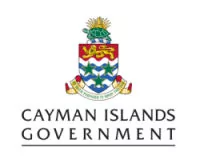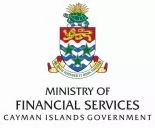Today (8 June 2016) is being celebrated worldwide as World Oceans Day with a theme of 'Healthy Oceans, Healthy Planet'. Globally our planet's oceans and seas are under an unprecedented level of threat from a variety of sources: overfishing, pollution of many types, overdevelopment of the coastal zone, mangrove removal, and now climate change.
As one of the first countries in our region (and in fact globally) to enact comprehensive marine conservation measures, including marine parks, the Cayman Islands are extremely fortunate to still be able to claim relatively healthy marine resources. However, over the past few years Cayman's marine environment has also been subjected to threats such as increased fishing pressure, ongoing coastal development, mangrove removal, climate-change induced coral bleaching, and even the proliferation of the invasive red lionfish.
It has been said that the ocean is the heart of our planet and protecting it requires us to respond with new and innovative legislative and policy measures. I am very proud to have been able to do my part in successfully piloting our National Conservation Law through the Legislative Assembly early in this Government's term, and I am committed to seeing the full commencement of the law in the very near future.
Last Saturday (4 June 2016), despite the weather, the Department of Environment (DoE) and its project partner, Marine Conservation International, held a very successful event, SharKY fest, in celebration of the fact that all sharks (and rays) are now completely protected everywhere in the Cayman Islands, out to the extent of our Exclusive Economic Zone. If one thinks about our geographic location in the western Caribbean, it can be appreciated that this means that there is a fair portion of the ocean where these extremely important animals are now safe.
As a fisherman I know the perception is that we compete with sharks for fish, but this is not the case. Even when a shark occasionally takes a tuna or snapper off the line it's not competing with us. That's simply a sign of a healthy marine environment, which means more fish! Research around the world has shown that when we have healthy shark populations we have healthy reefs and other marine environments.
So while Cayman has made significant strides in protecting our ocean, there is still much to be done. Providing continued and appropriate protections to our fragile marine environment which provides us with so many benefits, both economic (in terms of tourism jobs for example) and social (through recreation and enjoyment) is the goal of the proposals for enhanced marine parks, which have been the subject of extended public consultation over the past couple of years. Research carried out by the DoE and its Darwin Initiative project partners, Bangor University and The Nature Conservancy, has shown that marine protected areas are the most effective, most efficient and most economical way to conserve our marine resources for future generations.
Over the last 30 years our marine parks have served us well, preserving marine life in the Cayman Islands for residents and tourists alike to enjoy. But we know that our reefs are still in decline and we live in a different world today – the threats are real and growing and we must respond. This is why I am also committed to ensuring that the proposed enhancements to the marine parks, which have been recommended by the DoE and endorsed by the National Conservation Council, are adopted as soon as possible.
This week the world also celebrated World Environment Day on 5 June 2016, with a focus on illegal wildlife trade. The United Nations Environment Programme (UNEP) called on everyone to 'go wild for life' and take action to help safeguard, for future generations, species that are under threat. With the entry into force of parts 4 and 6 of the National Conservation Law last year the Cayman Islands took a big step forward in how we manage our native wildlife. Our Conservation Officers now have the powers they need to enforce our laws effectively and our courts are already seeing the benefits of this in the cases being brought before them.
The Cayman Islands has been a party to CITES – the Convention on International Trade in Endangered Species of Wild Fauna and Flora – for many decades. And with the entry into force last year of the Endangered Species Trade and Transport Law, the Cayman Islands' updated CITES legislation, we are doing our part as good stewards, not only of Cayman's wildlife resources but also of wildlife around the world. This is why for World Environment Day we join with other countries globally in defending our environment against not just illegal, but unsustainable, wildlife trade. It is worth noting that later this year, the parties to CITES will consider adding certain shark and ray species to the lists of protected species. As mentioned earlier the National Conservation Law now ensures that all sharks and rays are completely protected in Cayman waters, so we are once again ahead of the curve.
Our Government's goal is the conservation of nature, not just as an end in itself, but in recognition of the tight linkages and interdependencies of a healthy natural environment and the health and welfare of our people today and in the future. This is why I am so committed to seeing the National Conservation Law fully commenced as soon as possible, and why I will be bringing forward the proposals to enhance and future-proof our national system of marine parks. This week, in recognition of World Environment Day and World Oceans Day, we recommit ourselves as a nation to these goals for our people, who will be the ultimate beneficiaries of these environmental protections. When we protect our environment, we protect our people as well.
The content of this article is intended to provide a general guide to the subject matter. Specialist advice should be sought about your specific circumstances.

